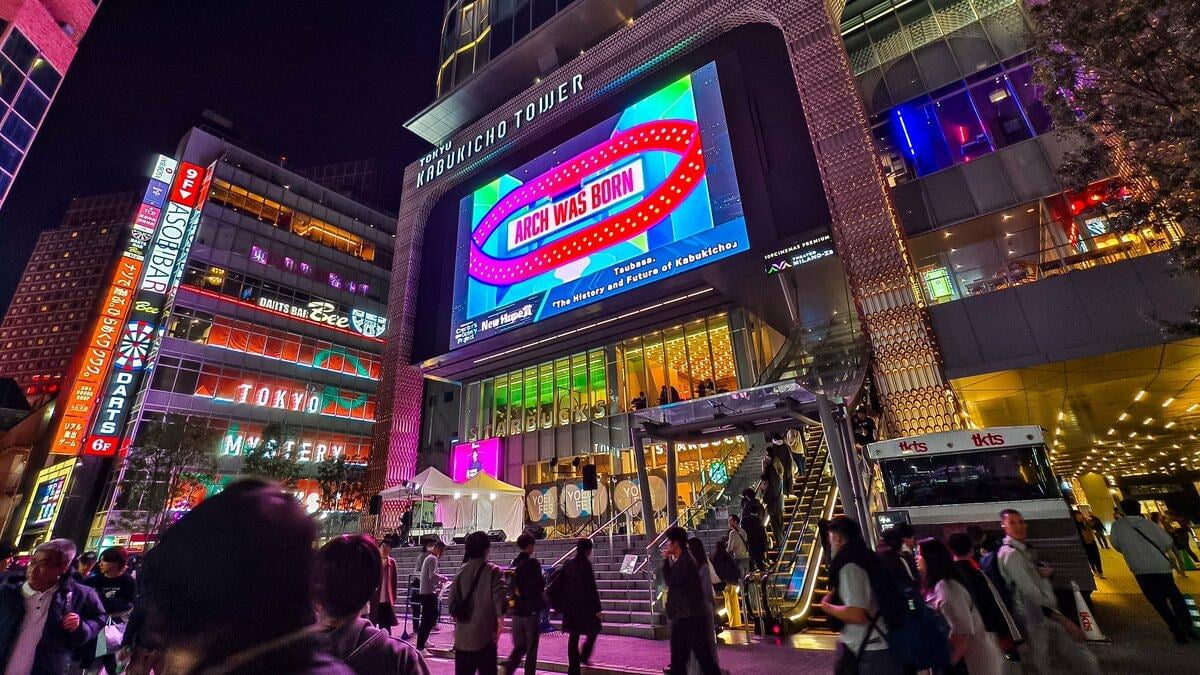
Tokyu Kabukicho Tower, opened by the Tokyu Group in Shinjuku’s Kabukicho in 2023, initially stirred controversy by introducing gender-neutral restrooms. Criticisms such as “unsafe” and “could lead to crime” quickly arose online, leading to their removal just four months after opening. Now, the tower faces new challenges, with some media reporting that its main attraction, the “Shinjuku Kabuki Hall” food court, is often empty.
Visiting the area on a weekend night in July, the contrast was stark. While Shinjuku’s streets were bustling with foreign tourists, the section of Kabukicho with the tower was relatively quiet, partially due to security measures deterring local teens known as “Toyoko Kids.” This created an uninviting atmosphere, which disrupted the flow of tourists wanting to explore Kabukicho.
Inside the tower, while the neon-lit food court wasn’t entirely empty, it was far from lively. Similarly, the third floor’s entertainment area, operated by Namco and linked to the food court, experienced sparse attendance despite its offerings.
The tower’s two main hotels, “HOTEL GROOVE SHINJUKU” and “BELLUSTAR TOKYO,” cater primarily to affluent international tourists. “BELLUSTAR” is a luxury hotel with high rates, aiming to attract wealthy guests, even enabling guests to hire top chefs for private dining experiences. Although less luxurious, “HOTEL GROOVE” remains expensive for typical use by Japanese residents.
Online reviews indicate high satisfaction among international visitors, though local engagement remains low. The tower’s redevelopment strategy focuses on attracting affluent foreigners rather than being a bustling hub for local activity. While this may seem like a failure to some locals, it’s a profitable venture for the Tokyu Group.
This trend of building for wealthier clientele extends to other Tokyu properties, such as the Shibuya Sakura Stage. While public spaces might appear deserted, upper floors house thriving businesses and luxury accommodations.
Despite criticisms that areas like Shibuya and Kabukicho are no longer accessible to the general public, the Tokyu Group prioritizes international and corporate clients due to socioeconomic shifts, including remote work and an aging population along its railway lines. Consequently, they focus on supporting businesses that promise growth, even when their developments don’t resonate with local daily life.
Tokyu’s approach to business development, favoring foreign wealth and high-profile partnerships, reflects broader societal changes and might, in some ways, hint at Japan’s future economic landscape.
by MagazineKey4532
